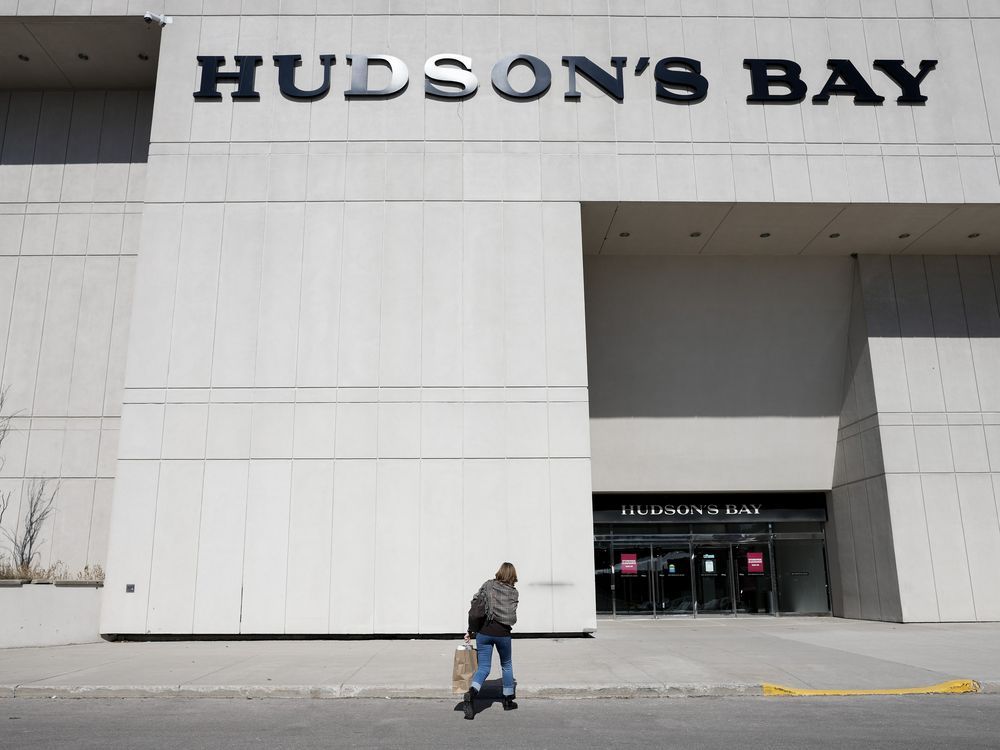Wave of Hudson’s Bay temporary store closures hints at signs of stress: retail experts

Parent company focused on U.S. deal for Neiman Marcus

Article content
Hudson’s Bay Co. made headlines last week after announcing it hoped to create a powerhouse in the world of luxury goods with the acquisition of Neiman Marcus Group LLC, but for some Canadian shoppers at its iconic Bay chain, it’s the basics that remain a bigger concern.
A number of Bay stores across Canada were temporarily closed this week for repairs in their heating, ventilation and air-conditioning systems, according to various media reports. For example, stores were closed in Vancouver, West Vancouver, Nanaimo, B.C., Coquitlam, B.C., and Victoria on Tuesday, according to the Vancouver Sun. Stores were also reported to have closed in Winnipeg and Windsor, Ont.
Advertisement 2
Story continues below
Article content
In recent months, shoppers have taken to social media to point out issues with maintenance at numerous Bay stores across the country, including repeated escalator outages and problems with air conditioning. The company declined to comment on the posts.
But some retail analysts view this week’s temporary closures as signs of stress, suggesting a lack of general upkeep due to the financial headwinds facing the sector.
“It is definitely not normal,” Liza Amlani, principal and founder of the Retail Strategy Group, said. “They thought (temporarily) closing the stores would be more cost-effective than bringing someone in to fix the problems and making some sales. That tells me that certain stores at the Bay are struggling.”
HBC last week said the completion of its US$2.65-billion deal to buy Neiman will create a separate entity for its Canadian business, which includes the Bay stores and a real estate portfolio estimated to be worth $2 billion.
The Canadian business will be “recapitalized as a standalone entity with significantly reduced leverage and enhanced liquidity,” the company said in a statement last week. “HBC’s Canadian business will be well positioned to support future growth while continuing to serve its loyal Canadian customer base.”
Article content
Advertisement 3
Story continues below
Article content
HBC did not provide any comment or elaborate on how creating a separate Canadian entity will help improve the situation of some of its stores in Canada.
Amlani said it could ultimately mean closing stores that aren’t profitable and focusing on the ones doing well.
“Separating Canada … is going to allow the leadership team to truly see what they can do with the Canadian entities and real estate,” she said.
Retail analyst Bruce Winder said that creating a separate Canadian entity could mean that the Bay will need to be self-sufficient because it is now “sort of on its own.”
According to David Ian Gray, principal and retail strategist at DIG360 Consulting Ltd., the Bay may not be the primary focus for HBC senior leadership. They will be more focused on Saks Global, the new company formed after the merger of HBC’s Saks and Neiman. Getting that merged entity up and running will take “time and effort,” he said.
Gray said he thinks keeping the Canadian operations separate could potentially “help increase a dedicated focus” on them and free up some funding, but it does not guarantee additional funding and resources will be used for core issues.
Advertisement 4
Story continues below
Article content
“The Bay needs to dial back the perpetual cycle of discounting,” he said. “Yet a critical mass of stores is needed for the volume of orders to attract brands and favourable pricing from vendors. On top of this, funds will be needed to update stores that have been neglected for a number of years. Relationships with customers and vendors will also need to be repaired before any hope of real revitalization.”
In November, HBC completed a series of real estate transactions to raise US$340 million in cash that the company said it would use to help fund its retail operations after falling behind on payments to its suppliers, according to the Globe and Mail.
Other department stores have faced headwinds in recent years, too. In addition to the pandemic and competition from online retailers, many brands have started to open their own stores in the past decade, which has affected the relevance of department stores that curate products from luxury brands.
For example, Nordstrom Inc. exited the Canadian market in 2023. HBC, meanwhile, has already reduced its footprint and is planning to close its store in downtown Regina in 2025.
Advertisement 5
Story continues below
Article content
Recommended from Editorial
Some analysts say HBC will benefit from the Neiman acquisition by lowering costs through back-office synergies and the elimination of redundant positions. The creation of a larger luxury sales company would also mean HBC would have more power when negotiating with brands that use its real estate to sell their products.
• Email: [email protected]
Bookmark our website and support our journalism: Don’t miss the business news you need to know — add financialpost.com to your bookmarks and sign up for our newsletters here.
Article content








Comments